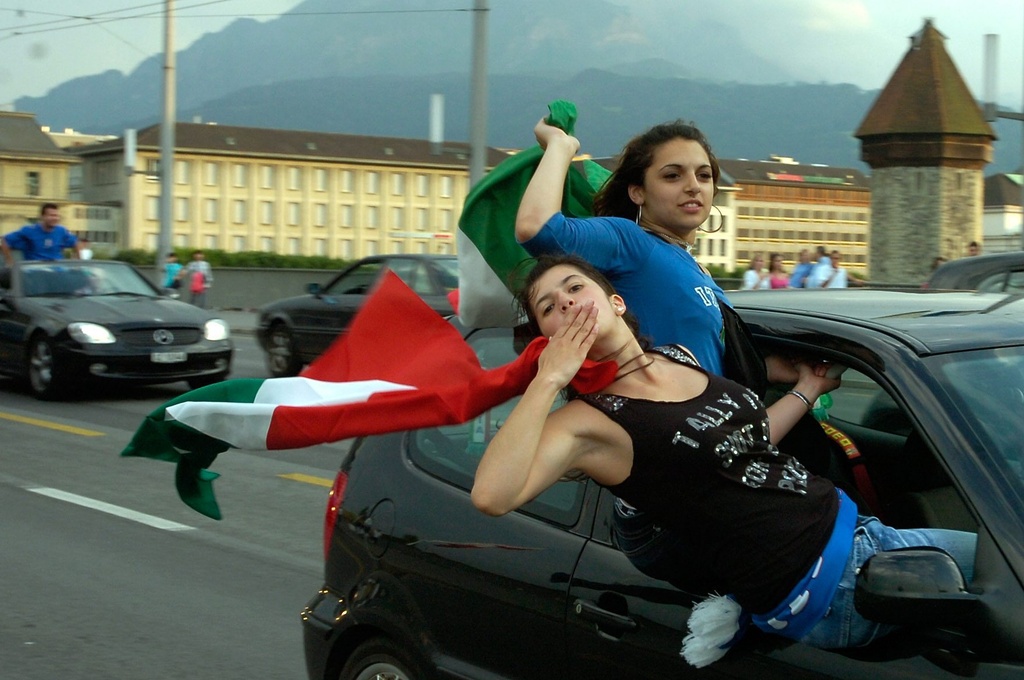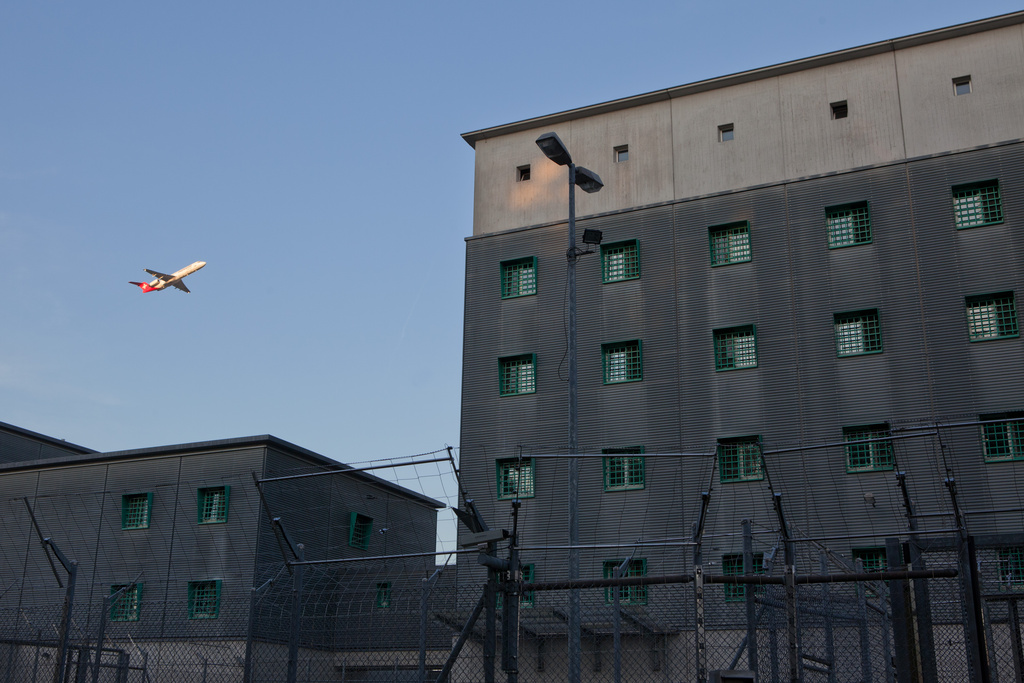French far-right learns from People’s Party

There have been contrasting reactions to last weekend’s vote on the deportation of criminal foreigners, with part of the French rightwing drawing inspiration from it.
The Swiss “yes” to the rightwing People’s Party initiative has made waves in neighbouring France.
The media echo is certainly less strong there than it was after last year’s decision to ban the construction of minarets. But this decision, one year later, has contributed towards a fixed image of Switzerland, particularly among those with set views.
Claude Askolovitch, editor in chief of the Journal du Dimanche newspaper said that in Europe “There is a Swiss problem”. The intellectual has joined the marginal but very vocal group of self-declared anti-Swiss. He goes as far as to say the Swiss are “a load of scum”.
Following the minaret vote and the polemic surrounding the house arrest of French-Polish film director Roman Polanski, there were two waves of reaction. First there was an almost general sense of indignation then an attempt to explain, and even understand the Swiss motives.
Soon after the November 29, 2009 minaret landslide, French President Nicolas Sarkozy wrote in a comment piece in the daily Le Monde: “Instead of condemning the Swiss people with no right of appeal, we should also try to understand what they wanted to say [through the vote] and what so many peoples of Europe feel, including the French.” Polls which followed showed the French people would not have voted any differently.
It is hard to say whether the second phase of reaction has started yet, but there are already intellectuals known as “taboo breakers” who attempt to explain or indeed justify the latest Swiss decision.
Turning inwards
“The Swiss people voted for all peoples of Europe who share their opinion,” commented editorial writer Eric Zemmour.
Even the most indignant voices recognise that the Swiss decision was simply a reflection of the tendency to turn inwards that is affecting Europe as a whole. Switzerland is not an exception but is leading the way in this respect. For some, Switzerland serves as a model. For others it is a negative example.
The French hard right see Switzerland as a model: they reacted immediately and with delight.
“Through this vote, the Swiss have shown they are free and attached to their identity, prosperity and civil peace,” said Marine Le Pen, the vice-president of the French National Front. “Once again they have wrongfooted the authorities who all called for the initiative text to be rejected.”
The Swiss vote is even playing a role in the war of succession within the National Front. Bruno Gollnisch, Le Pen’s rival, also hurried to congratulate the Swiss people.
Leading the way
“It’s clear the People’s Party is leading the way compared with the other hard right parties,” noted politologue Jean-Yves Camus, an expert on the far right.
“On the electoral scale it is generally outstripping similar parties in Austria and Norway. But it is particularly on the political strategy level that it is dominant. It shows once again that the old-style rightwing is dead.”
“They seized hold of a theme that is on the march across Europe: anti-multiculturalism, anti-Islam,” added Camus. “And it was able to impose its agenda, first with the minaret vote and the claim of the ‘religious incompatibility’ of Islam with western values, secondly the incompatibility of customs: foreigners are portrayed as black sheep and criminals.”
In France, the hard right are full of admiration. And that doesn’t just go for the National Front. On December 18 People’s Party parliamentarian Oskar Freysinger will visit Paris at the invitation of “identity” and anti-Islam movements.
“Freysinger has the advantage over other hard right German speakers in being bicultural,” said Camus. “What also counts in his favour is his appearance as a young , white rebel and his non-academic, down-to-earth language.”
Automatic deportation
Judging by its silence, the majority centre-right Union for a Popular Movement is embarrassed by the Swiss vote. But its rightwing fringe wants to seize on it as an opportunity to tighten the French immigration law.
“Our Swiss friends have given a real lesson in good sense to their European neighbours confronted with the same problems of crime,” according to the “Popular Right” group of the UPM, which includes the very media savvy Lionnel Luca and Christian Vanneste.
On the site of the Figaro. Luca sets out his intentions: “We will present an amendment to reintroduce the automatic expulsion of criminal foreigners as soon as the opportunity arises.”
The deportation of criminal foreigners in Switzerland was accepted by 52.9% of voters.
Only five cantons rejected it – Geneva, Vaud, Jura, Neuchâtel and Basel City
The counter-proposal submitted by parliament was rejected by 54.2% of Swiss voters.
All 26 cantons rejected it.
The stripping of nationality is applied to all French naturalised for less than ten years who are convicted of murder and attacks against “persons with public authority”, for example the police and firefighters.
Special holding centres, similar to those at airports, can be set up to cope with the arrival of a group of at least ten foreigners who do not use a border crossing.
A foreigner, European or not, who has been in the country for more than three months but less than three years, may be deported in the event of “threats to public order”, in particular robbery, aggressive begging or an illegal activity.
(Translated from French by Morven McLean)

In compliance with the JTI standards
More: SWI swissinfo.ch certified by the Journalism Trust Initiative












You can find an overview of ongoing debates with our journalists here . Please join us!
If you want to start a conversation about a topic raised in this article or want to report factual errors, email us at english@swissinfo.ch.